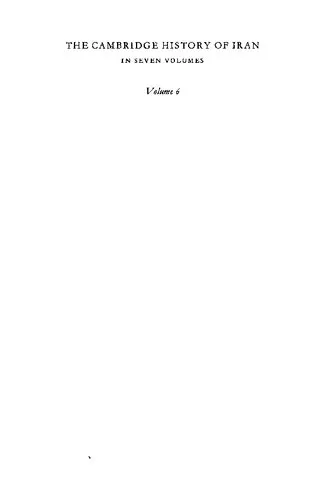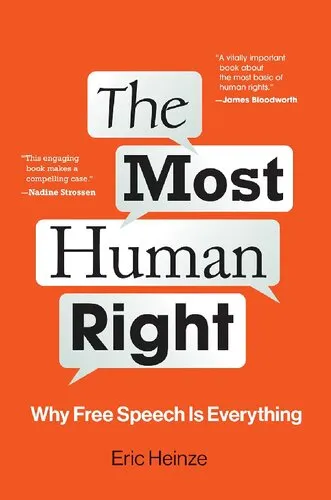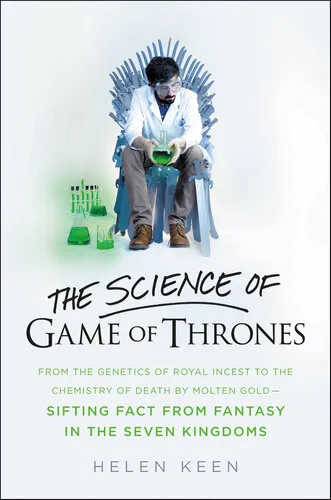Ethics
5.0
Reviews from our users

You Can Ask your questions from this book's AI after Login
Each download or ask from book AI costs 2 points. To earn more free points, please visit the Points Guide Page and complete some valuable actions.Related Refrences:
Analytical Summary
Ethicspp.904—906 stands as a significant work examining the dense and intricate layers of moral philosophy. Written for discerning readers who value analytical precision and intellectual rigor, this book scrutinizes fundamental concepts, guiding principles, and the logical structures underlying ethical reasoning. Authored by Andrew Levine, it offers critical discourse on how ethics can be interpreted, constructed, and applied in diverse contexts—bridging academic theory with practical reality.
At its core, the text engages readers with an uncompromising review of ethical frameworks, ranging from classical perspectives to modern debates. Each page is imbued with careful argumentation, drawing connections between philosophical traditions and contemporary moral dilemmas. The analytical coverage is designed to help readers examine both the foundations and limits of normative systems, challenging assumptions and inspiring reflective thought.
While focusing on sections pp.904—906, the narrative maintains cohesion with the broader corpus of ethical scholarship. This specific range unveils sophisticated discussions that integrate logic, empirical observation, and value theory. Information regarding publication year and awards is unavailable due to the absence of reliable public sources, but the enduring thematic relevance ensures its place in serious ethical literature.
Key Takeaways
Readers of Ethicspp.904—906 will come away equipped with advanced conceptual tools for moral evaluation, a deeper appreciation of philosophical discourse, and an improved capacity for ethical reasoning in both academic and real-world settings.
First, the book offers a rigorous framework for assessing moral arguments, providing clarity on concepts that are often misinterpreted or oversimplified. Second, it underscores the importance of contextual awareness—acknowledging that ethical reasoning is most effective when it is responsive to specific cultural, historical, and situational factors. Third, it nurtures a practice of constructive skepticism, encouraging readers to critically examine even the most established principles. Fourth, it bridges analytic philosophy and applied ethics, demonstrating how theory can inform practice without losing nuance. Finally, it instills confidence in articulating ethical positions with precision and depth, a skill essential for scholars, professionals, and policy-makers alike.
Memorable Quotes
“Ethical clarity emerges only when one confronts complexity without evasion.” Unknown
“The rigor of moral philosophy lies not just in thought, but in its disciplined application.” Unknown
“Every ethical principle must withstand the test of lived reality.” Unknown
Why This Book Matters
Ethicspp.904—906 matters because it elevates the dialogue on ethics from mere conceptual discussion to actionable insight. It invites scholars and practitioners alike to revisit, refine, and sometimes reconstruct their moral frameworks in light of sharper analytical inquiry.
For professionals in law, medicine, public policy, and education, the text offers a methodological anchor for ethical decision-making. Academics will find its precise argumentation a valuable resource for teaching and research. In today’s climate—where moral questions intersect constantly with societal change—the importance of a disciplined, context-aware approach cannot be overstated.
Inspiring Conclusion
In the culminating insights of Ethicspp.904—906, Andrew Levine offers a rare synthesis of academic depth and practical relevance. The work invites its readers—be they students, scholars, or professionals—to extend the conversation beyond the page, to explore further readings, and to engage peers in rich debate.
By navigating these pages, you gain not only theoretical knowledge but also a renewed ethical sensibility—a readiness to apply moral philosophy with confidence and care. Take the next step: read Ethicspp.904—906, share its ideas with colleagues, and bring its analytical rigor into your professional and personal life. In doing so, you become part of an ongoing tradition of thoughtful, responsible ethical discourse.
Free Direct Download
You Can Download this book after Login
Accessing books through legal platforms and public libraries not only supports the rights of authors and publishers but also contributes to the sustainability of reading culture. Before downloading, please take a moment to consider these options.
Find this book on other platforms:
WorldCat helps you find books in libraries worldwide.
See ratings, reviews, and discussions on Goodreads.
Find and buy rare or used books on AbeBooks.
1185
بازدید5.0
امتیاز0
نظر98%
رضایتReviews:
5.0
Based on 0 users review
Questions & Answers
Ask questions about this book or help others by answering
No questions yet. Be the first to ask!











